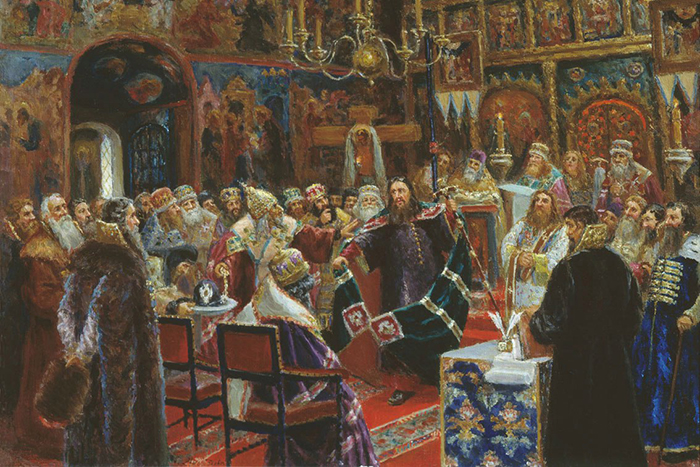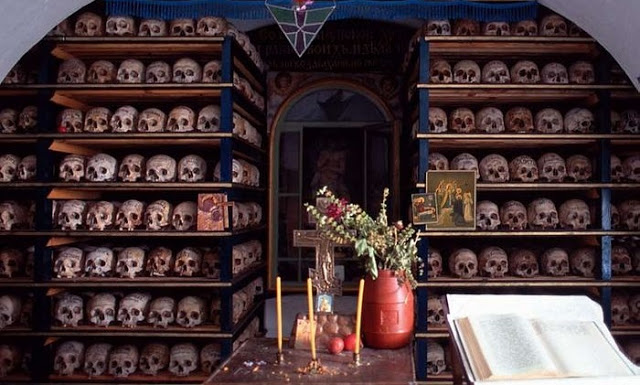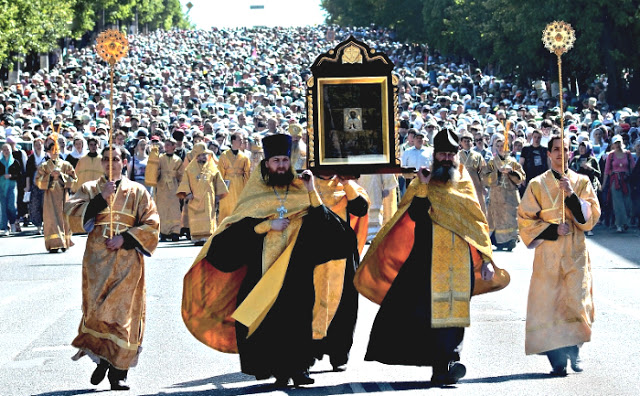
Canons deprive laymen of the Chalice for grave sins for a certain period of time. If the same sin is committed by a clergyman, the punishment for him will be stricter, due to the high responsibility that rests on him when he takes up his ministry. The canon law has developed the notion of defrocking, to which clerics who have committed moral crimes or allowed official misconduct are subjected. What are the main reasons for the removal from sacred orders?
Moral offences
Clerics are defrocked not only for such grave sins as premeditated murder, but also for involuntary homicide committed in self-defense. Clerics are not allowed to be violent at all. Apostolic Canon 27: If a bishop, presbyter, or deacon shall strike any of the faithful who have sinned, or of the unbelievers who have done wrong, with the intention of frightening them, we command that he be deposed. For our Lord has by no means taught us to do so, but, on the contrary, when he was smitten he smote not again, when he was reviled he reviled not again, when he suffered he threatened not. (see 1 Peter 2:23).
Fornication, adultery, sins against nature, and theft are also punishable by defrocking. If a priest has been found guilty of alcoholism or gambling, he is given a chance to repent, but if these sins are entrenched, he loses his dignity (Ap. 43).
The family life of the clergy is subject to high expectations. Marriage must be exclusively monogamous; a second marriage is forbidden even for widowed clergy; marriage is also forbidden for monks and those who marry after receiving the Sacrament of Holy Orders (Rule 6 of the Quinisext Council).
Clerics must set a good example not only in their family life, but also in public life, so it is strictly forbidden to do anything that may somehow cause the flock to stumble (Rule 62 of the Quinisext Council). Back in ancient times it included participation in festivals with elements of pagan rites, going to theaters and circuses. Nowadays, it can mean going to any questionable event.
Ministry-related misconduct
The Protodeutera Council of Constantinople (861) decided to defrock the clergy who do not mention their bishop during the divine worship. The only exception to this rule is if the bishop falls into heresy that has already been condemned by the councils, and if he preaches it publicly, rather than in private conversation. In such a case, the clergyman must break off the fellowship with the heretic and not commemorate him. However, if the doctrine has not yet been condemned, and the clergyman ceases to mention the bishop who preaches heresy on his personal initiative, he will be expelled from his ministry, even if the doctrine is later condemned by the Council (Rule 15 of the Protodeutera Council), because he preempted the judgment of the whole Church.
Strict measures are taken against those who have fallen into heresy and schisms. They are not only deprived of their priestly dignity, but also of the right to participate in the Eucharist. Those who, after the expulsion from the ministry, dare to engage in sacramental activity (Rule 28 of the Apostles) are also anathematized. The canons are particularly strict in punishing those who, with the help of secular authorities, acquire a priestly office as well as those who obtain a priestly office for money (see the Apostolic Rules with interpretation). Both those who acquired the position illegally and those who facilitated it are subject to defrocking and excommunication.
Difference from Roman Catholics
An important feature of the excommunication of clergy is the fact that the clergyman returns to the status of a simple layman with the deprivation of all rights, and is not just demoted. The bishop does not become a priest. Even the defrocked patriarch loses all of his ecclesiastical ranks at once. The convicted person has the right to appeal and be reinstated if it turns out that the trial was unfair. The Roman Catholic Church does not have such a penalty as defrocking, for its doctrine presupposes the indelible character of the Sacrament of Holy Orders, not unlike the Sacrament of Baptism. Their doctrine suggests a lifetime ban on ministry with the loss of all priestly rights and duties other than the obligation to observe celibate (CIC. 290-293) and the right to hear the confession from a believer who is about to die (CIC. 976).
Therefore, the canons prescribe to deprive the clergy who have gravely sinned in one way or another of their ministry in a number of cases. Clerics are punished by removing their ecclesiastical status, but not by excommunication from the Church and not by depriving them of the Holy Communion due to the ancient principle documented both in the Scripture ([A]ffliction shall not rise up the second time. Nahum 1:9) and in Roman law. In practice, however, the hierarchy rarely applies the canons with all rigor, preferring church indulgence over strict adherence to all rules. More often than not, a priest may be punished with a temporary ban, rather than with removal from the sacred orders. As severe as some canons may seem, their purpose is to prevent diseases of the Church organism, whereas the Church hierarchy has the power to interpret these canons and decide when to apply them, in view of the good of the Church.



